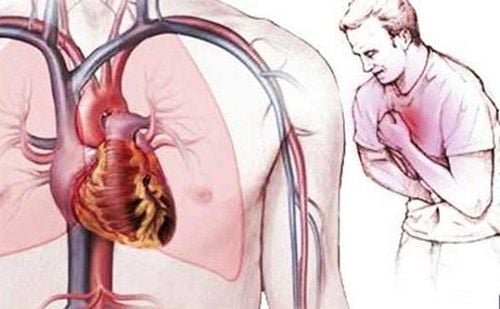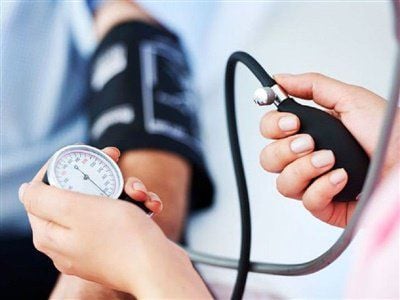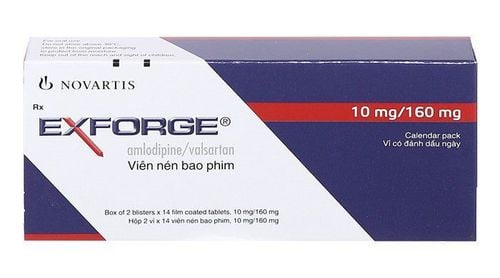ACE inhibitors are among the most commonly used antihypertensive medications due to their numerous benefits and effective treatment outcomes. So, what is the mechanism of action and side effects of ACE inhibitors?
1. Mechanism of action of ACE inhibitors
ACE inhibitors are among the most commonly used antihypertensive medications today. The mechanism of action of ACE inhibitors involves binding to the zinc ion of the Angiotensin I converting enzyme, thereby reducing the rate of conversion to Angiotensin II (a potent vasoconstrictor). Consequently, ACE inhibitors have a vasodilatory effect, decreasing peripheral resistance, and lowering blood pressure. Beyond causing vasodilation, Angiotensin II also has numerous adverse effects on the cardiovascular system, such as altering the structure of the heart, blood vessels, and kidneys. ACE inhibitors also have additional benefits by protecting the cardiovascular system and kidneys from remodeling. Reduced levels of Angiotensin II directly decrease aldosterone, resulting in a slight increase in serum potassium and fluid excretion. Moreover, ACE inhibitors may impact the Kallikrein-kinin system, reducing the breakdown of bradykinin and increasing the synthesis of prostaglandins, thereby decreasing peripheral resistance and lowering blood pressure.

Many clinical trials have demonstrated the role of ACE inhibitors in reducing cardiovascular risk, particularly their effectiveness in lowering morbidity and mortality in patients with concomitant heart failure and chronic kidney disease. Some notable advantages of ACE inhibitors include their neutral impact on glucose and lipid metabolism and their lack of effect on blood and urine uric acid levels. Therefore, they can be used in hypertensive patients with diabetes and lipid disorders.
2. Common ACE inhibitors
Captopril was the first ACE inhibitor introduced in 1977. Since then, there are approximately 15 different ACE inhibitors available. Some commonly used ACE inhibitors include:
- Captopril
- Benazepril
- Enalapril
- Lisinopril
- Quinapril
- Perindopril
- Fosinopril
- Trandolapril
- Delapril
- Ramipril
The antihypertensive effect of ACE inhibitors among these drugs is nearly equivalent. Most drugs in this group have a long duration of action, lasting over 24 hours, thus requiring only once-daily dosing.
Exceptions include Captopril, with a shorter duration of action (6-12 hours), and Moexipril, with a duration of 12-18 hours.
In addition to treating hypertension, ACE inhibitors are also indicated for preventing, treating, or improving symptoms in conditions such as coronary artery disease, heart failure, diabetes, certain chronic kidney diseases, myocardial infarction, scleroderma, and migraines.
Doctors may prescribe ACE inhibitors in combination with other medications like diuretics or calcium channel blockers. However, ACE inhibitors should not be combined with Angiotensin receptor blockers or direct renin inhibitors.
One notable characteristic of ACE inhibitors is their more pronounced effect in younger individuals compared to older adults and in white patients compared to black patients. For antihypertensive medications, doctors will choose the appropriate drug based on the specific characteristics of the patient.

3. Side effects of ACE inhibitors
Some side effects of ACE inhibitors that patients may experience during treatment include:
Dry cough: This is a common side effect of ACE inhibitors. Sometimes, the persistent cough may necessitate switching to a different class of medication.
Hyperkalemia: This condition can result from various causes, mainly due to reduced blood pressure to the kidneys, decreased aldosterone secretion, and reduced renal tubular function.
Sudden hypotension: This drug may cause excessive lowering of blood pressure upon initial dosing, especially in patients with heart failure, renal impairment, concomitant diuretic use, diarrhea, or vomiting. To avoid this, treatment often starts with a low dose, which is then gradually increased.
Angioedema: Unlike allergic angioedema, ACE inhibitor-induced angioedema does not present with urticaria. It is caused by increased bradykinin activity and vasomotor effects leading to fluid accumulation and angioedema. In such cases, the medication should be discontinued immediately, and appropriate interventions should be implemented.
Other potential side effects of ACE inhibitors include headaches, loss of taste, maculopapular rash, leukopenia, dizziness, fatigue, diarrhea, and nausea.
ACE inhibitors are contraindicated during pregnancy due to the risk of injury and death to the fetus. Therefore, if the patient is pregnant or planning to become pregnant, they should inform their doctor to select alternative antihypertensive medications.
To arrange an appointment, please call HOTLINE or make your reservation directly HERE. You may also download the Vinmec app to schedule appointments faster and manage your reservations more conveniently.
Please dial HOTLINE for more information or register for an appointment HERE. Download MyVinmec app to make appointments faster and to manage your bookings easily.
Reference source: mayoclinic.org













